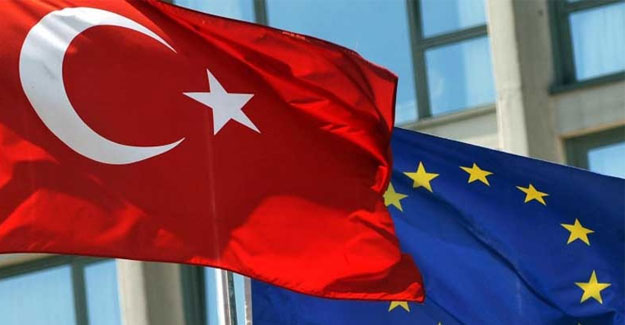
Turkey's Accession To EU Seen As Very Unlikely
On 6 October 2020, the European Commission adopted its 2020 Enlargement Package. This Enlargement Package assesses the implementation of fundamental reforms in those countries wishing to join the EU and sets out recommendations on the next steps for those countries. The Package also includes country? specific reports on the progress of those countries, which are Turkey and six Western Balkan countries. Turkey's membership to the EU appears to be rather unlikely, while the European Commission is stepping up its efforts regarding the Western Balkan countries. The European Commission adopts an Enlargement Package every year, usually in the spring. This year's Enlargement Package was postponed until the autumn because of the pandemic. With this latest Package, the European Commission can be seen as trying to stimulate the accession process especially with the six Western Balkan countries. This is clearly reflected in the Economic and Investment Plan for the Western Balkans, which the European Commission adopted on the same day as the Enlargement Package. Under this plan, the European Commission will mobilise up to EUR 9 billion of funding for the Western Balkans. Currently, there are four Western Balkan candidate countries with which the EU has opened accession negotiations. Those are Montenegro, Serbia, Albania and North Macedonia. The EU opened accession negotiations with Montenegro in 2012, with Serbia in 2014 and with Albania and North Macedonia earlier this year. There are also two Western Balkan potential candidates, namely Bosnia?Herzegovina and Kosovo. With these two countries, the EU has not yet opened accession negotiations, but they have been promised the prospect of joining the EU as and when they are ready. The 2020 Enlargement Package makes clear that the six Western Balkan countries still have a long way to go before they are able to become members of the EU. The accession of even one of the four Western Balkan candidate countries with whom negotiations have already opened is not expected before the passing of several years. This is because the EU's accession procedure is a long and complex one. Countries must first become candidates, and subsequently they must implement the EU acquis, which is the body of common rights and obligations that are binding on all EU Member States. Candidate countries must additionally comply with the accession criteria. These criteria are divided into three groups, namely, political criteria, economic criteria and the administrative and institutional capacity to implement the EU acquis effectively. Unfortunately, the 2020 Enlargement Package is very pessimistic. The EU opened accession negations with Turkey in December 2004. However, over the past years, Turkey has been - figuratively speaking - moving further away from the EU and hence further away from its accession to the EU. This is clearly reflected in the 2020 Enlargement Package as the European Commission notes that "the accession negotiations have effectively come to a standstill". With respect to Turkey, the European Commission is especially worried about adverse developments in the areas of democracy, the rule of law, fundamental rights and the independence of the judiciary. Those concerns arise in particular because of Turkey's constitutional framework which centralises powers at the level of the President. Hence, the European Commission stresses that Turkey needs to bring its constitutional framework in line with EU standards if it wishes to become a member. Further, the report stresses that in case Turkey were to continue taking unilateral actions in breach of international law such as its illegal drilling activities in waters claimed by Greece and Cyprus, two existing EU Member States, "the EU will use all the instruments and the options at its disposal". One of the instruments the EU could use is economic sanctions against Turkey. Since 1995, the EU and Turkey have a Customs Union in place. This Customs Union covers all industrial goods. In sum, the 2020 Enlargement Package has assessed the overall state of play of the accession procedure until now. It has revealed that Western Balkan countries appear to be on the right path, although they still have a long way to go. The Package has also made clear that Turkey is felt to be moving in another direction, and therefore is further away from EU accession than perhaps any other time in its history of accession negotiations with the EU.
Textile Excellence
If you wish to Subscribe to Textile Excellence Print Edition, kindly fill in the below form and we shall get back to you with details.












